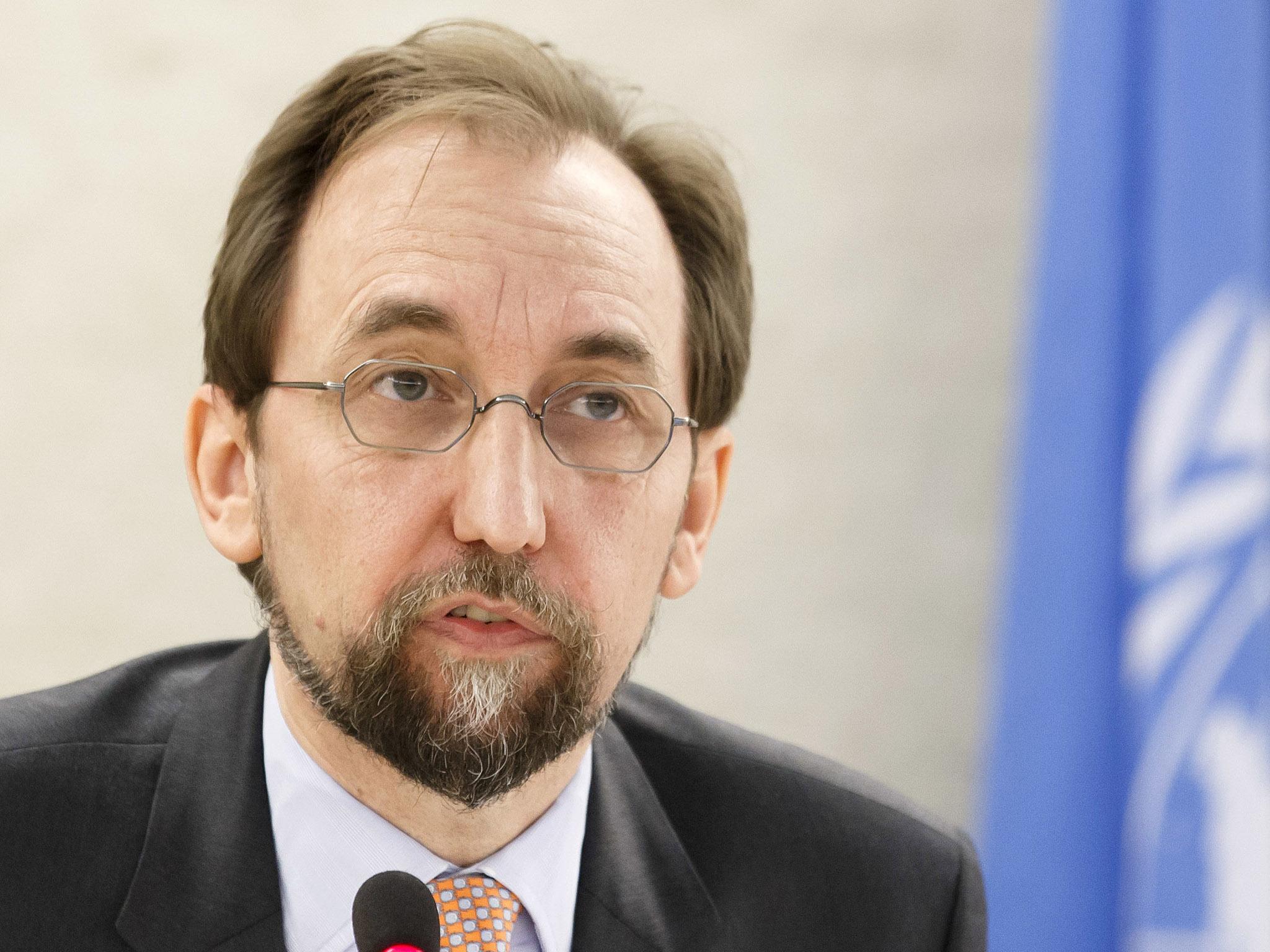UN human rights commissioner condemns 20 executions in Iran as a 'grave injustice'
Zeid Ra'ad Al Hussein says there are 'serious doubts about the fairness of the trials'

Your support helps us to tell the story
From reproductive rights to climate change to Big Tech, The Independent is on the ground when the story is developing. Whether it's investigating the financials of Elon Musk's pro-Trump PAC or producing our latest documentary, 'The A Word', which shines a light on the American women fighting for reproductive rights, we know how important it is to parse out the facts from the messaging.
At such a critical moment in US history, we need reporters on the ground. Your donation allows us to keep sending journalists to speak to both sides of the story.
The Independent is trusted by Americans across the entire political spectrum. And unlike many other quality news outlets, we choose not to lock Americans out of our reporting and analysis with paywalls. We believe quality journalism should be available to everyone, paid for by those who can afford it.
Your support makes all the difference.The UN High Commissioner for Human Rights has condemned the hanging of 20 people in Iran this week for alleged terrorism-related offences, claiming a “grave injustice” had been done by the country’s judicial system.
Zeid Ra'ad Al Hussein said in a statement received by the Independent that there were “serious doubts about the fairness of the trials, respect for due process and other rights of the accused”, most of whom were believed to be Sunni Muslims from the Kurdish community.
The UN Human Rights commission alleged one of the men hanged, named as Shahram Ahmadi, a 29-year-old Kurdish activist, had been physically assaulted and forced to sign a piece of paper a false confession was written on.
According to local reports, he was arrested after distributing leaflets demanding rights for the Sunni minority population in Iran.
Mr Ahmadi was also allegedly denied the right to see his family prior to his execution, and relatives were instead directed to the cemetery where he was due to be buried near Tehran.
“The application of overly broad and vague criminal charges, coupled with a disdain for the rights of the accused to due process and a fair trial have in these cases led to a grave injustice,” Mr Zeid added.
The High Commissioner highlighted the execution of 19-year-old Hassan Afshar, who was 17 when he was arrested and convicted of rape. The teenager received no legal representation during his two month trial.
“The execution of juvenile offenders is particularly abhorrent and I urge Iran to respect the strict prohibition under international human rights law against this practice,” he said.
The executions were confirmed on Wednesday by the Iranian intelligence ministry, which said the Kurdish convicts were working with a terrorist cell responsible for attacks in Iran’s western provinces.
Kurdish people make up nearly 9 percent of Iran’s 80 million population, and are largely Sunni Muslims in a country ruled by Shi'ites.
Last month it was reported that Iran and Saudi Arabia have together executed more than 350 people so far this year, according to statistics released by human rights groups.
Subscribe to Independent Premium to bookmark this article
Want to bookmark your favourite articles and stories to read or reference later? Start your Independent Premium subscription today.
Join our commenting forum
Join thought-provoking conversations, follow other Independent readers and see their replies
Comments